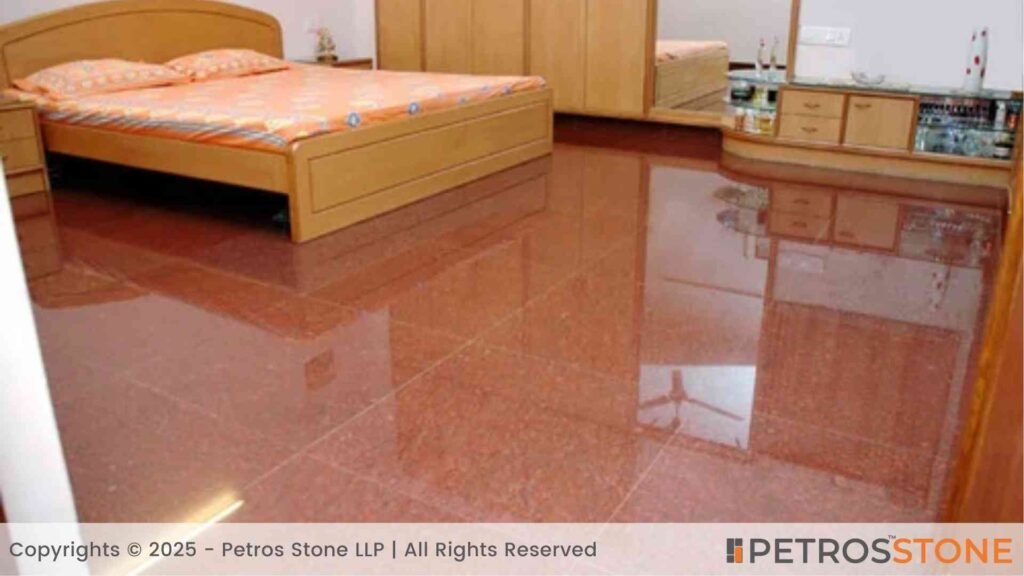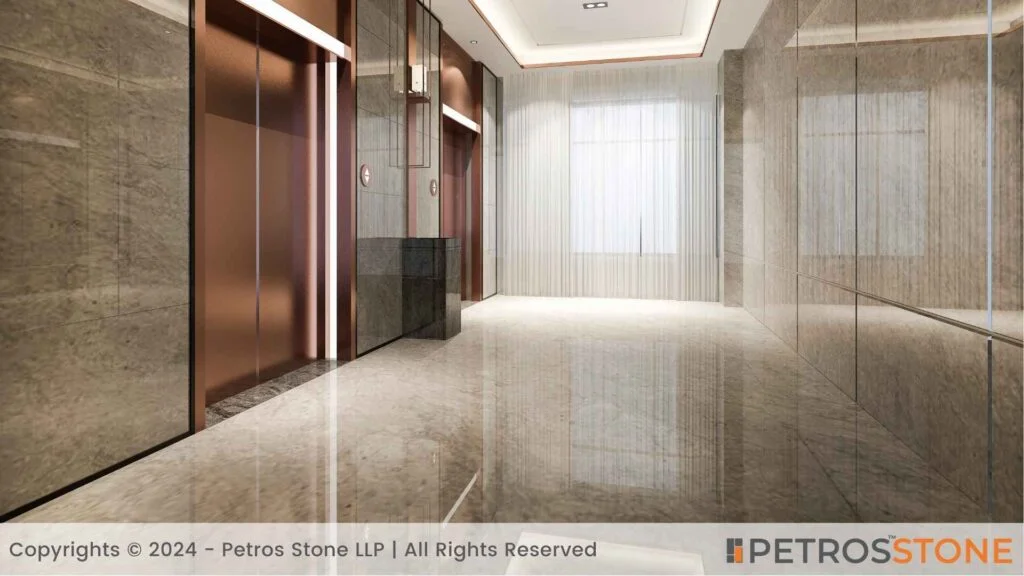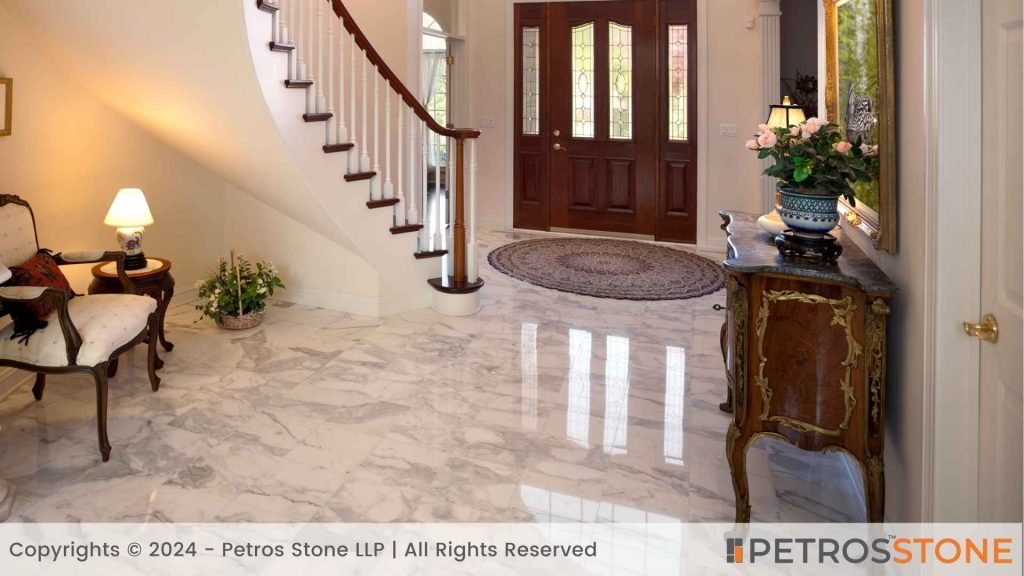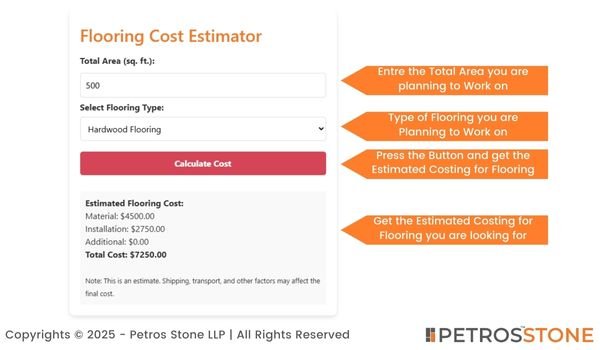Flooring Cost Estimator | Granite, Marble Flooring | Any Floorings
Flooring Cost Estimator
Flooring Cost Calculator
Estimate your flooring project cost instantly! Use the free flooring cost calculator for easily and instantly calculating the estimated cost of doing your marble, ceramic tile, or granite flooring.
You can also estimate vinyl, hardwood and more than 10 different types of flooring – and use our comparison tool to compare them against each other.
This online calculator gives you a quick but reasonably accurate idea of flooring costs of more than 10 different types of flooring materials with installation!
Get material & installation estimates instantly without having to contact anyone.
Plan your budget faster and better using this flooring cost calculator!
Granite or Marble Flooring Cost Calculator
Planning a renovation or building a new space is genuinely exciting! You start picturing the flooring – which sets the entire tone of a room, but let’s be honest, the cost of flooring can also be one of the biggest unknowns while budgeting.
Trying to figure out if that beautiful porcelain tile is affordable or how much a durable marble flooring will cost – often feels like a mystery.
That’s exactly why having a tool like the Flooring Cost Estimator is so incredibly helpful. Think of it as your first step towards realistic planning.
This online calculator gives you a quick but reasonably accurate idea of flooring costs of more than 10 different types of flooring materials with installation!. This is a free flooring cost estimator – whether you want to know wood flooring costs, vinyl flooring costs, laminate flooring costs, or even natural stone like marble or granite tiles, this tool has you covered. It eliminates some of the initial cost uncertainty so you can explore options with more confidence.



This Tool Calculates Material and Installation Costs
Unlike some calculators that only look at the price of the material itself, the Flooring Cost Estimator aims to give you a slightly broader picture by considering two key components:
- The Flooring Material: Based on the type you select (hardwood, LVP, tile, etc.) and the area size you enter.
- Estimated Installation: It also provides an approximate cost for the labor involved in installing that specific type of flooring.
By combining these, the tool generates
- Estimated Material Cost: What the flooring itself might cost for your square footage.
- Estimated Installation Cost: A ballpark figure for the installation cost to lay it.
- Total Estimated Cost: The sum of the two, giving you a more complete initial budget figure to work with.
This is useful because installation costs vary greatly by flooring type (e.g., intricate tile work costs more to install than click-lock laminate). Estimates for both help you compare options more realistically.
Sometimes, the cost of material is much higher than the installation costs and sometimes it’s the opposite.
How It Works: Step by Step

Step 1: Enter Your Area
First, determine how much square footage you need for the room or area you want to cover. Measure Length and Width and multiply by (Length x width = Area). In the “Total Area (sq. ft.)” box, enter this number.
Step 2: Choose Your Flooring
Click the dropdown menu under “Select Flooring Type.” You’ll see a comprehensive list. Just select the material you’re interested in getting an estimate for.
Step 3: Calculate!
Hit the “Calculate Cost” button
Instantly, the tool will display the estimated material cost, estimated installation cost, and the combined total estimate based on the average rates it uses for the flooring type you selected and the area you entered. It’s that quick!
Flooring Types Covered
One of the best things about this tool is the sheer variety of flooring types it covers. It truly acts as an all-in-one flooring cost calculator, letting you explore costs for:
- Hardwood Flooring
- Engineered Wood
- Luxury Vinyl Plank (LVP) Flooring
- Laminate Flooring
- Porcelain/Ceramic Tile Flooring
- Natural Stone Tile
- Carpet Flooring
- Concrete Flooring
- Cork Flooring
- Bamboo Flooring
This extensive list means you can easily use it as a specific vinyl flooring cost calculator, wood flooring cost calculator, laminate flooring cost calculator, or get estimates for nearly any common flooring material.
Not only that you can compare the cost of multiple floorings and check which one fits your budget by using our:
The Pros
- Instant Feedback: No waiting around. Get immediate cost estimates to help your planning process move forward quickly.
- Broad Comparisons: Easily compare the potential total costs (material + installation estimates) across many different flooring types for your specific room size.
- Simple and Fast: The user-friendly design means you don’t need to be a flooring expert to use it – just enter your area and pick a type.
- Budget Clarity: Helps avoid major “sticker shock” later by giving you a realistic starting point for budgeting early on.
Flooring Cost Comparison
This tool is more than just a number generator; it’s a decision-making aid:
- See the Real Cost Difference: You might love hardwood, but seeing its estimated total cost next to high-quality LVP might make you reconsider based on your budget.
- Explore “What Ifs”: Quickly check the cost difference between ceramic tile and natural stone tile for your bathroom, or laminate versus engineered wood for the living room.
- Allocate Your Budget: Knowing roughly what flooring might cost helps you allocate funds realistically across your entire renovation or building project.
Need More Comparisons? Check Out the Comparison Tool
For those who want to dig even deeper, Petrosstone also provides a dedicated flooring cost comparison tool. This might offer side-by-side views or additional details to help finalize your decision based on budget and features. You can find it here.
Pros and Cons of Each Flooring Type
The Flooring Cost Estimator gives you a great starting point on budget, but cost isn’t the only factor! Each flooring material comes with its own set of advantages and disadvantages in terms of durability, maintenance, comfort, and style. Here’s a closer look at the pros and cons of the types covered in our calculator:
Hardwood Flooring - Pros and Cons
Pros | Cons |
Timeless beauty and classic elegance | Higher cost (material & installation) |
Increases home resale value | Susceptible to scratches and dents |
Durable and very long-lasting | Sensitive to moisture and humidity changes (can warp/gap) |
Can be sanded and refinished multiple times | Requires specific maintenance and periodic refinishing/recoating |
Natural, non-synthetic material | Not ideal for bathrooms, basements, or very humid climates |
Engineered Wood - Pros and Cons
Pros | Cons |
Authentic real wood appearance (top layer) | Limited refinishing potential (1-2 times max, sometimes none) |
More stable than solid wood; resists humidity changes better | Top wood layer can still scratch and dent like solid wood |
Can often be installed over concrete or radiant heat | Quality varies significantly (wear layer thickness, core material) |
Sometimes slightly less expensive than solid hardwood | Not fully waterproof; unsuitable for areas with standing water |
Luxury Vinyl Plank (LVP) Flooring - Pros and Cons
Pros | Cons |
Typically 100% waterproof (ideal for wet areas) | Not a natural material; lower perceived resale value than wood/stone |
Highly durable: resists scratches, dents, stains, wear | Can be punctured or gouged by very heavy/sharp objects |
Realistic wood and stone visuals available | Quality varies (wear layer thickness is key to quality) |
More comfortable and warmer underfoot than tile | Difficult to repair individual planks if severely damaged |
Often features easy click-lock installation (DIY-friendly) |
|
Good value for a high-end look |
|
Laminate Flooring - Pros and Cons
Pros | Cons |
Very budget-friendly | Not waterproof; highly susceptible to moisture damage (swelling) |
Excellent scratch, stain, and impact resistance (wear layer) | Cannot be refinished; damaged planks must be replaced |
Easy DIY click-lock installation | Can sound hollow or loud underfoot without quality underlayment |
Wide variety of wood and tile looks available | Often perceived as less premium than wood, LVP, or tile |
Easy to clean surface | Not recommended for bathrooms, kitchens, or damp basements |
Porcelain/Ceramic Tile Flooring - Pros and Cons
Pros | Cons |
Extremely durable and long-lasting | Hard and cold underfoot (uncomfortable for some) |
Waterproof and easy to clean | Grout lines require sealing and regular cleaning to prevent stains/mold |
Huge variety of styles, colors, sizes, patterns | Installation is labor-intensive and often requires professionals |
Doesn’t harbor allergens | Can crack or chip if heavy objects are dropped |
Good heat conductor (works well with radiant heating) | Can be slippery when wet (especially glossy finishes) |
Natural Stone Tile Flooring (Marble, Granite, Slate, etc.) - Pros and Cons
Pros | Cons |
Softest and warmest flooring option underfoot | Stains easily and requires prompt cleaning |
Excellent sound insulation | Traps dust, allergens, pet dander (requires frequent vacuuming) |
Wide variety of colors, textures, and fibers | Shows wear patterns in high-traffic areas over time |
Can be relatively inexpensive | Difficult to deep clean; needs periodic professional cleaning |
Hides subfloor imperfections well | Not suitable for wet areas (kitchens, bathrooms) |
Slip-resistant | Can hold odors if not cleaned properly |
Concrete Flooring - Pros and Cons
Pros | Cons |
Extremely durable and long-lasting | Very hard underfoot; unforgiving for falls or dropped items |
Modern, industrial aesthetic | Feels cold without radiant heating |
Low maintenance when properly sealed | Requires good sealing to prevent moisture/stains; needs resealing |
Customizable with stains, polishes, coatings | Can develop hairline cracks over time |
Excellent for radiant heating systems | Achieving specific finishes requires professional installation |
Cork Flooring - Pros and Cons
Pros | Cons |
Eco-friendly (renewable resource) | Susceptible to dents from heavy furniture and scratches/gouges |
Naturally cushioned and comfortable underfoot | Can fade or discolor with prolonged direct sunlight exposure |
Good thermal and acoustic insulator | Requires a durable top coat sealer for protection |
Naturally resistant to mold and mildew | Can swell with excessive moisture; not ideal for very wet areas |
Bamboo Flooring - Pros and Cons
Pros | Cons |
Sustainable resource (fast-growing grass) | Quality and durability vary greatly depending on type/manufacturing |
Stylish, modern appearance similar to wood | Can scratch or dent (especially non-strand-woven or carbonized types) |
Very durable (especially strand-woven bamboo) | Sensitive to humidity changes (can swell/shrink) |
| Refinishing can be difficult or impossible for some types (engineered) |
Accuracy and Disclaimer
Now, it’s really important to keep in mind that this Flooring Cost Estimator provides estimates. Think of it as a very educated guess based on average material prices and typical installation rates.
- Why it’s an Estimate: Real-world costs can swing quite a bit! Factors like your specific city or region (labor rates vary), the exact brand and quality level of the flooring you choose, sales or promotions, how much subfloor preparation is needed (is it level? damaged?), the complexity of your room layout (lots of angles?), and the specific contractor you hire will all influence the final bill.
- What’s Not Included: The estimate doesn’t cover things like removing and disposing of your old flooring, significant subfloor repairs, moving heavy furniture, new baseboards or trim, or delivery fees.
- How to Use It: Use this calculator as your starting point for budgeting and comparison. It’s fantastic for that initial planning phase. However, always get detailed, written quotes from at least 2-3 reputable flooring suppliers and installers specific to your project before making a final decision or signing any contracts. That’s the only way to know the true, final cost.
Ready to Take the Next Step?
Once the Flooring Cost Estimator has helped you get a clearer budget picture and perhaps narrow down your material choices, the team at Petros® Stone is here to help you move forward. Whether natural stone, tiles, or other options are your thing, we can help with material selection, custom requirements, and competitive pricing.
If you’re ready for a quote tailored specifically to your project:
Get a free, Detailed Quote or reach out via WhatsApp for personalized help.
Don’t let flooring costs be a mystery.
Start planning your project with more precision today using this Flooring Cost Estimator!
